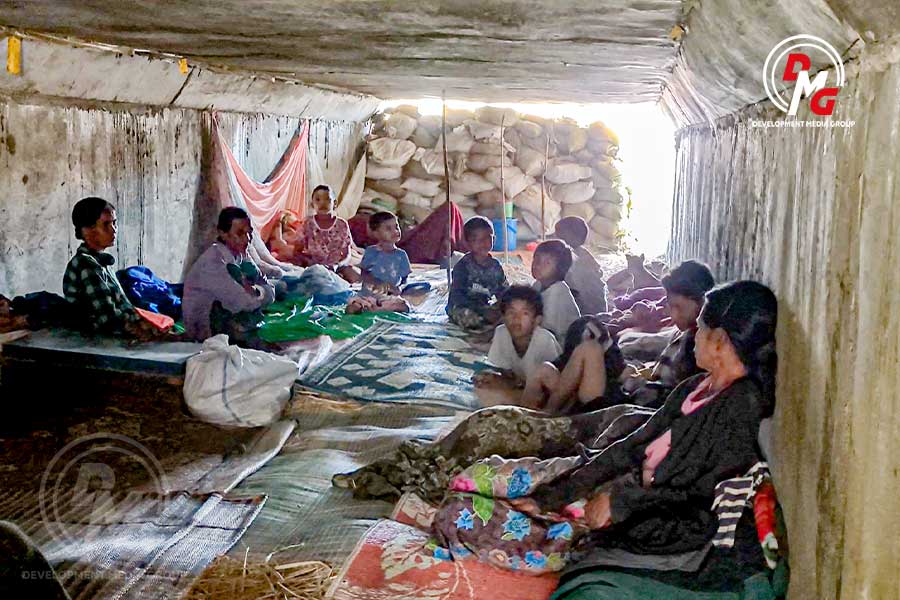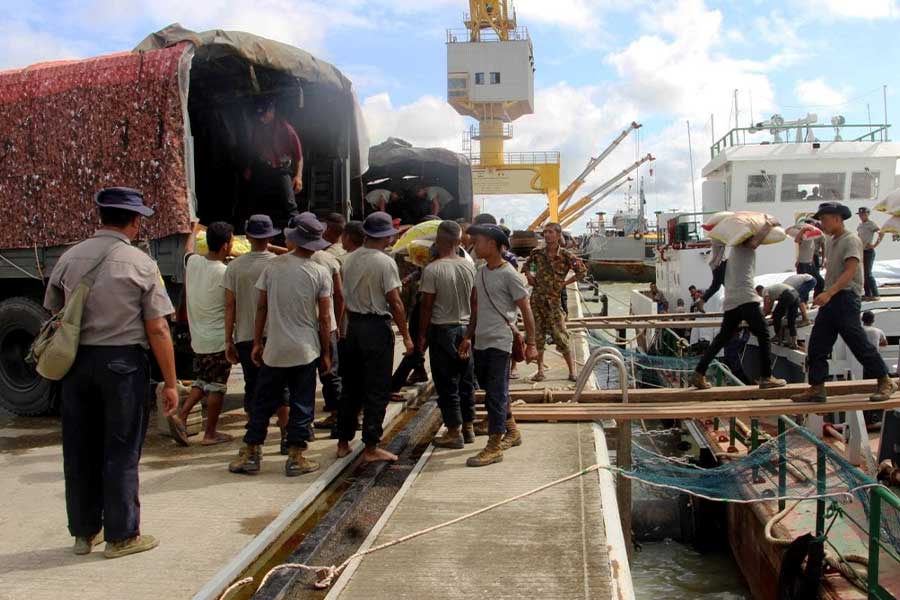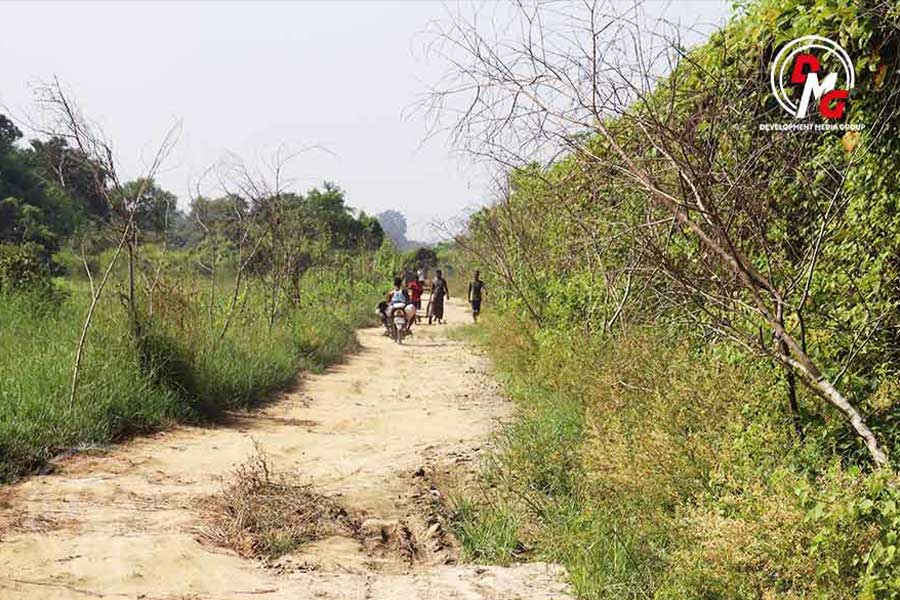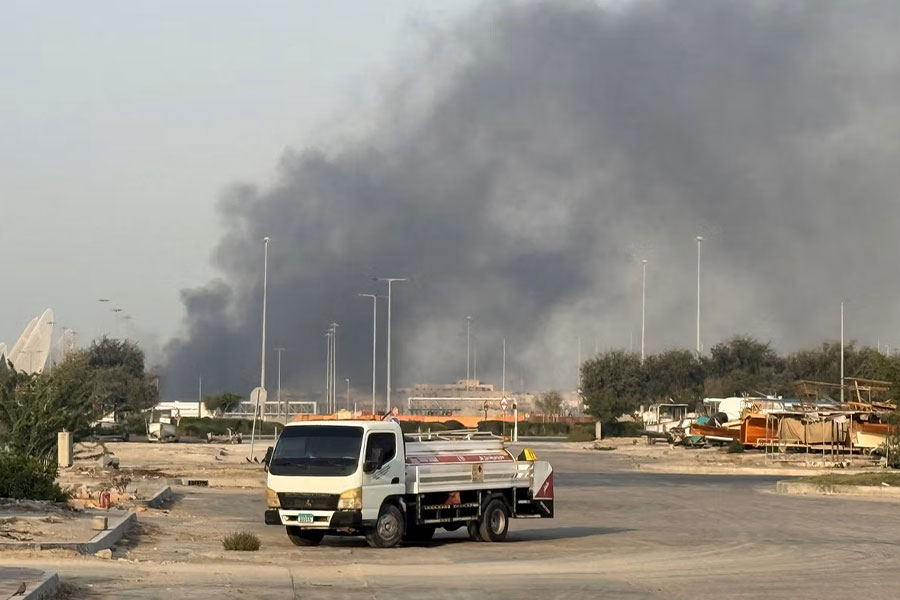- Arakan residents gripped by fear as junta airstrikes intensify
- Junta personnel, police and families evacuate Sittwe for mainland Myanmar
- Muslim armed groups killed 162 civilians in two years in northern Arakan: HDCO report
- Arakanese migrants in Middle East on high alert amid escalating Iran conflict
- People with disabilities in Arakan State face severe livelihood hardships amid ongoing conflict
Arakan products account for 30% of Myanmar exports to Bangladesh
Goods produced in Arakan State account for 30 percent of Myanmar’s exports to Bangladesh, which shares a border with Arakan State, according to officials from the border trade zone and merchants.
24 Apr 2023
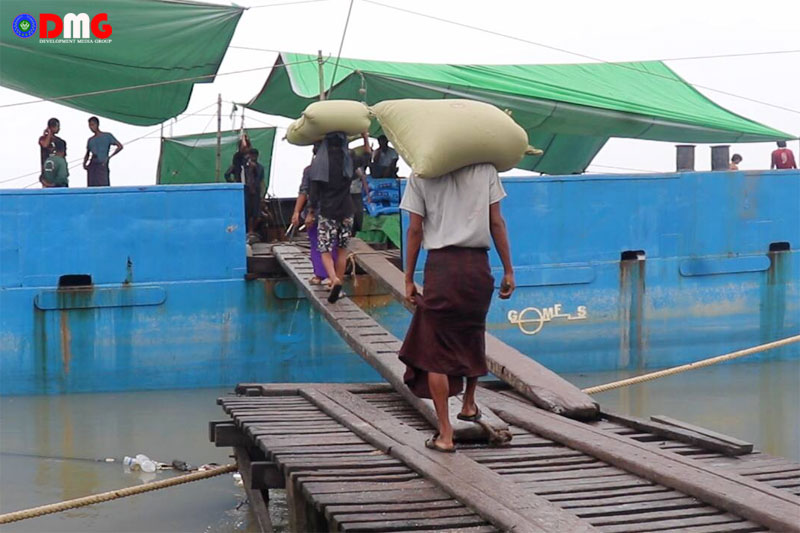
DMG Newsroom
24 April 2023, Sittwe
Goods produced in Arakan State account for 30 percent of Myanmar’s exports to Bangladesh, which shares a border with Arakan State, according to officials from the border trade zone and merchants.
“Arakan State mainly exports dried chili, Marian plum and dried fish to Bangladesh. Arakan State also exports rice to Bangladesh. Among the products exported from Myanmar to Bangladesh, only 30 percent of products are from Arakan State. Most products are from mainland Myanmar,” said U Aung Aung, general secretary of the Rakhine State Chamber of Commerce and Industry.
Myanmar’s products are exported to Bangladesh via border trade zones in Sittwe and Maungdaw. As the production of goods from Arakan State is low in some sectors, local merchants have to order and ship goods from mainland Myanmar at a higher cost.
If more goods from Arakan State can be exported to Bangladesh, transportation costs will be reduced and trade will be conducted more efficiently, said a local trader from the Maungdaw border trade zone, who did not wish to be named.
“If we can export products from Arakan State to Bangladesh, we will no longer need to import goods from mainland Myanmar. Since the goods have to be transported from a long distance, the goods may be damaged on the way. If we can export products from Arakan State to Bangladesh, it will be very convenient for us because the transportation and labour costs will all be reduced,” said the unnamed merchant.
A merchant from the Sittwe border trade zone said that if the products being demanded for export to Bangladesh can be produced commercially in Arakan State, employment opportunities will be created.
“Locals leave for mainland Myanmar because there are no job opportunities in Arakan State. If agriculture and livestock thrive in Arakan State, the number of people leaving Arakan State will decrease and the income of rural people will increase. If there are employment opportunities, locals will be able to overcome their livelihood hardships for a certain period of time,” the merchant added.
Arakan State’s agriculture industry as a whole is declining as people leave the fields due to lack of modern technology, capital and market guarantees, said U Khin Maung Gyi, vice chairman of the Rakhine Economic Initiative Public Co., Ltd. (REIC).
“Now, in terms of the political and military situation, we need to be willing and able to rely on ourselves,” he added. “In order to develop the economy of Arakan State, Arakanese people must unite. We cannot rely too much on the government to advance these development projects. You also need to be strong in your desire to do it.”




